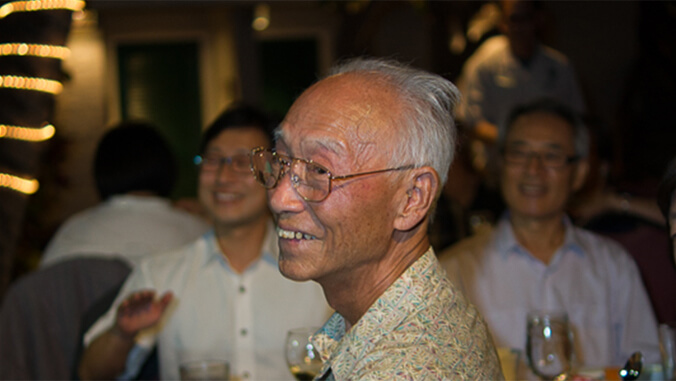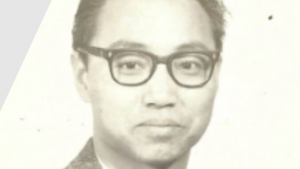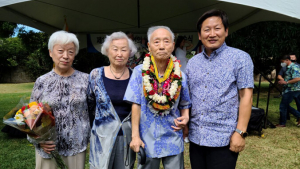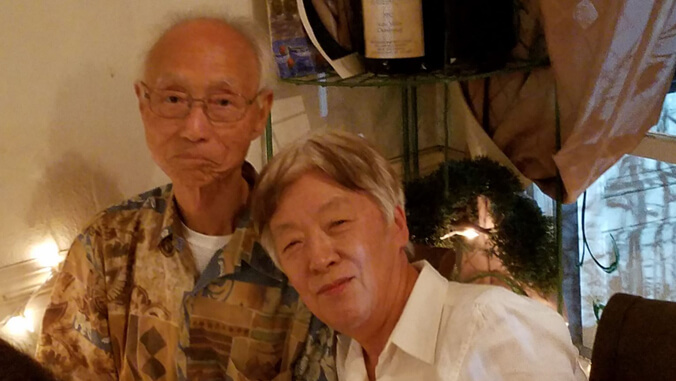
Yong-ho Ch’oe, emeritus professor at the University of Hawaiʻi at Mānoa, a pioneering scholar of Korean history, a devoted husband, and a loving father of two sons, died peacefully on May 15, 2024, in Honolulu. He was 93.

Ch’oe joined the UH Mānoa Department of History in 1970, where he served for 30 years. He was a trailblazing scholar of Korean history and Korean American history, as well as an early advocate of Korean studies. With Ch’oe and Hugh Kang (emeritus professor) on the history faculty, UH Mānoa became the first university in the U.S. to grant a PhD in Korean history. Ch’oe was also a founding member of the UH Mānoa Center for Korean Studies, the oldest and largest center devoted to Korean studies outside of Korea, established in 1972.
His commitment to advancing Korean studies is further reflected in his involvement in launching two seminal academic journals—Korean Studies based at UH Mānoa, in 1975, and Acta Koreana based at Keimyung University in his hometown of Daegu, in 1998.
“All must live together in peace and harmony with mutual respect for each other.”—Yong-ho Ch’oe
In an interview with Acta Koreana in 2010, Ch’oe said the following when asked about what the East and the West should to learn from each other: “Too often in the encounters between the East and the West, the latter has exhibited its ugly inclinations, such as misconceived racism and a predatory appetite toward the former, taking advantage of its military and industrial power. But, fortunately, such a conception has fast dissipated in the last several decades. Globalization is inevitable and is here now, and regardless of one’s origin or belief, all must live together in peace and harmony with mutual respect for each other.”
Ch’oe’s research, represented by three books, traversed time periods and regions. His first book, published in 1987, was The Civil Examinations and the Social Structure in Early Yi Dynasty Korea, 1392-1600, a groundbreaking book about the society of Korea’s Joseon Kingdom. Another major contribution was Sources of Korean Tradition, Volumes 1 and 2 (1993 and 1996) and Sources of Korean Tradition, Volumes 1 and 2 (1997 and 2000). Later in his career, he wrote about the history of Koreans in Hawaiʻi, penning From the Land of Hibiscus: Koreans in Hawaiʻi, 1903-1950, published by UH Press in 2006.
A capacity for hard work, a sense of duty for a greater cause

Born in 1931 in the city of Gyeongsan in southeastern Korea during the tumultuous colonial period, Ch’oe grew up in a family deeply involved in the Korean independence movement, an upbringing that brought hardship but also equipped him with the capacity for hard work and a sense of duty for a greater cause. When the Korean War broke out in 1950, Ch’oe enlisted in the South Korean army, eventually becoming an intelligence officer and serving until 1958. A part of his duty was to work with the U.S. military, a job that opened an opportunity for him to go to college in the U.S. He completed his undergraduate education at the University of Arizona and his graduate education at the University of Chicago.
Colleagues remember Ch’oe as a person filled with kindness, generosity, humor and courage. He was a brilliant historian, a wonderful colleague and a champion of underrepresented peoples of Hawaiʻi. He is survived by his spouse, Minja Kim Ch’oe (a renowned population studies scholar), their two sons, Dan and Yun, and a granddaughter. For more about Ch’oe and his work in the community, visit the Center for Korean Studies website.


